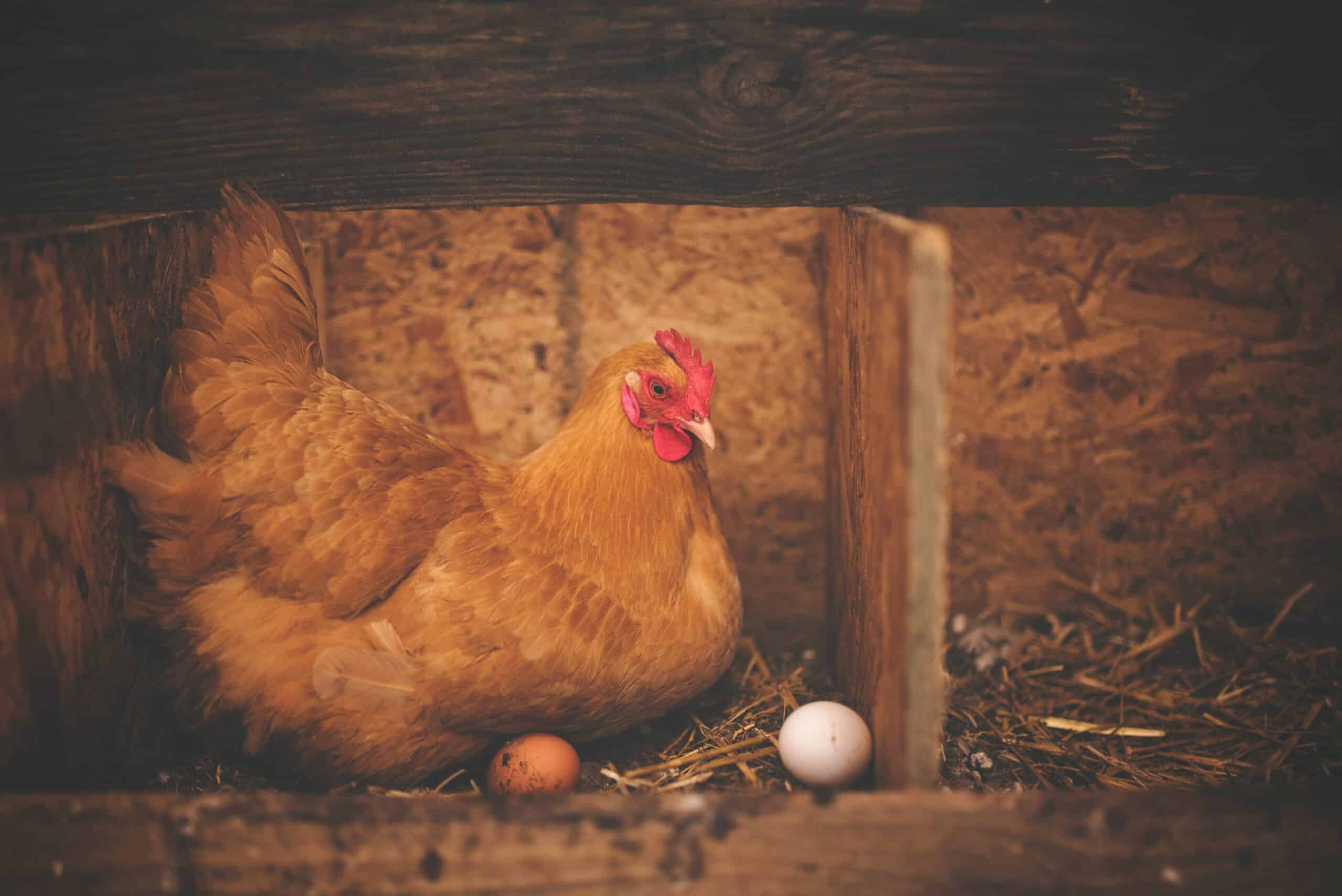If you’re interested in owning your own chickens for eggs, you’re not alone. Many people are turning to backyard chicken keeping as a way to produce their own fresh, healthy, and sustainable source of eggs. But before you start, there are some things you need to know to ensure that you and your chickens are happy and healthy.
In this post, I’ll cover everything you need to know to start raising chickens for eggs, from the basics of chicken breeds and coop design to feeding, health, and egg collection.
Why raise chickens for eggs?
First, let’s talk about why you might want to raise chickens for eggs. Here are a few reasons:
- Fresh, healthy eggs: The eggs you get from your own chickens will be fresher and more nutritious than store-bought eggs. You’ll know exactly what your chickens are eating, and you can be sure that they’re not being given any antibiotics or other additives.
- Sustainable living: Raising chickens for eggs is a sustainable way to produce food. You can reduce your carbon footprint by eating food that you produce yourself, and you’ll be reducing the demand for eggs that are shipped from far away.
- Connection to your food: When you raise your own chickens for eggs, you’ll have a deeper connection to your food. You’ll know where your food comes from, and you’ll appreciate it more.
Choosing the right chicken breed
When it comes to choosing a chicken breed, there are several factors to consider. Here are a few of the most important ones:
- Egg production: If you’re raising chickens primarily for eggs, you’ll want to choose a breed that is known for its egg-laying abilities. Some of the best egg-laying breeds include Leghorns, Rhode Island Reds, and Australorps.
- Temperament: Different chicken breeds have different temperaments. Some breeds are more docile and friendly, while others are more aggressive. If you have kids or pets, you may want to choose a breed that is known for being gentle and easy to handle.
- Climate: Some chicken breeds are better suited to cold climates, while others do better in warm climates. Make sure to choose a breed that is well-suited to your local climate.
- Space requirements: Some chicken breeds are better suited to small backyards, while others require more space. Make sure to choose a breed that is well-suited to the size of your backyard.
Designing a chicken coop
Once you’ve chosen your chicken breed, the next step is to design a chicken coop. Here are a few things to consider:
- Size: Your chicken coop should be big enough to comfortably house your chickens, but not so big that they get lost in it. As a general rule, you’ll need 2-4 square feet of coop space per chicken, and 8-10 square feet of outdoor space per chicken.
- Ventilation: Your chicken coop should have good ventilation to ensure that your chickens have fresh air and that moisture doesn’t build up inside the coop. You can use windows, vents, or fans to provide ventilation.
- Nesting boxes: Your chickens will need a place to lay their eggs, so make sure to include nesting boxes in your coop design. You’ll need one nesting box for every 4-5 hens, and each box should be about 12×12 inches.
- Roosts: Chickens like to perch at night, so make sure to include roosts in your coop design. You’ll need about 8-10 inches of roosting space per chicken, and the roosts should be about 2-3 feet off the ground.
Feeding your chickens
Feeding your chickens a healthy diet is important for their health and for the quality of their eggs. Here are some things to keep in mind when it comes to feeding your chickens:
- Commercial feed: You can buy commercial chicken feed at most farm supply stores. Look for a feed that is formulated for egg-laying chickens, and make sure that it contains a balanced mix of protein, carbohydrates, and vitamins and minerals.
- Supplements: In addition to commercial feed, you can also supplement your chickens’ diet with treats like fresh fruits and vegetables, grains, and mealworms. Just make sure that treats don’t make up more than 10% of your chickens’ diet, as too many treats can lead to health problems.
- Water: Make sure your chickens have access to clean, fresh water at all times. Chickens can drink a surprising amount of water, so make sure that you have enough waterers to meet their needs.
- Grit: Chickens need grit to help them digest their food. You can buy commercial grit at most farm supply stores, or you can provide your chickens with sand or small stones.
- Free-ranging: If you have a backyard that is safe for your chickens to roam in, you can let them free-range. This means that they’ll be able to forage for insects, grass, and other natural food sources. Free-ranging can help supplement your chickens’ diet and provide them with extra exercise.
Keeping your chickens healthy
Keeping your chickens healthy is important for their well-being and for the quality of their eggs. Here are some things to keep in mind when it comes to chicken health:
- Regular health checks: Check your chickens regularly for signs of illness, such as lethargy, loss of appetite, or unusual behavior. If you notice any signs of illness, take your chicken to a veterinarian who is familiar with poultry health.
- Clean coop: Keep your chicken coop clean and dry to prevent the buildup of bacteria and parasites. Clean out the coop and nesting boxes regularly, and replace bedding as needed.
- Parasite control: Parasites like mites and lice can be a problem for chickens. You can use a variety of methods to control parasites, including dust baths, diatomaceous earth, and poultry dust.
- Vaccinations: Some chicken breeds are more susceptible to certain diseases, such as Marek’s disease. Check with your local vet to see if vaccinations are recommended for your chickens.
Collecting and storing eggs
Collecting and storing eggs properly is important to ensure that they are safe to eat. Here are some tips for collecting and storing eggs:
- Collect eggs regularly: Collect eggs from your chickens at least once a day to ensure that they don’t become dirty or cracked.
- Clean eggs: If an egg does become dirty, clean it gently with a soft cloth or a brush. Don’t use water, as it can remove the protective bloom on the eggshell.
- Store eggs properly: Store your eggs in a cool, dry place, ideally at a temperature between 45-55°F. Don’t wash your eggs before storing them, as this can remove the protective bloom on the eggshell.
- Use eggs within a reasonable time frame: Eggs can be stored for several weeks in the refrigerator, but they are best when used within a week of being laid.
Conclusion
Raising chickens for eggs can be a fun and rewarding hobby. By choosing the right chicken breed, designing a comfortable and safe coop, feeding your chickens a healthy diet, and taking good care of their health, you’ll be able to enjoy fresh, delicious eggs from your own backyard. Just remember to do your research and be prepared to commit the time and effort needed to take good care of your chickens.
Here are some recommended websites where you can find more information about owning chickens for egg-laying:
- The Self-Sufficient Backyard: For The Independent Homesteader. This comprehensive resource covers everything you need to know to get started, from choosing the right breed to setting up a coop and caring for your birds. You’ll learn how to keep your chickens healthy and happy, and get tips for maximizing egg production. Whether you’re a seasoned homesteader or just getting started, The Self-Sufficient Backyard‘s guide to raising chickens for eggs is a must-read. Click HERE to learn more.
- Backyard Chickens (https://www.backyardchickens.com/) – This is a comprehensive resource for all things chicken-related, including forums, articles, and a directory of local breeders.
- The Spruce (https://www.thespruce.com/raising-chickens-for-eggs-3016715) – This website has a comprehensive guide to raising chickens for eggs, with tips on everything from choosing a breed to caring for your birds.
- My Pet Chicken (https://www.mypetchicken.com/) – This website offers a wide selection of chicken breeds, as well as chicken supplies and information on raising chickens for eggs.
- The Happy Chicken Coop (https://www.thehappychickencoop.com/) – This website offers a range of articles on chicken care, including information on choosing the right breed, designing a coop, and caring for your birds.
- Chickenpedia (https://www.chickenpedia.com/) – This website offers a comprehensive online course on raising chickens for eggs, with detailed lessons on everything from incubation to health and nutrition.
- American Poultry Association (https://www.amerpoultryassn.com/) – This is the official website of the American Poultry Association, which is the oldest poultry organization in the US. It offers a wealth of information on poultry breeds, shows, and standards.
- Mother Earth News (https://www.motherearthnews.com/homesteading-and-livestock/raising-chickens-for-eggs-zm0z12onzkon) – This website has an extensive article on raising chickens for eggs, with advice on choosing a breed, building a coop, and caring for your birds.
- The Livestock Conservancy (https://livestockconservancy.org/) – This organization is dedicated to promoting the conservation of heritage livestock breeds, including many breeds of chickens. Their website offers information on breed history, conservation efforts, and breeders.
By utilizing these resources, you can gain a comprehensive understanding of raising chickens for eggs and be prepared to start your own backyard flock.
Sources:
- Storey’s Guide to Raising Chickens by Gail Damerow – https://www.storey.com/books/storeys-guide-to-raising-chickens-4th-edition/
- The Joy of Keeping Chickens by Jennifer Megyesi – https://www.goodreads.com/book/show/5805172-the-joy-of-keeping-chickens
- The Chicken Health Handbook by Gail Damerow – https://www.storey.com/books/the-chicken-health-handbook/
- Fresh Eggs Daily by Lisa Steele – https://www.fresheggsdaily.com/p/fresh-eggs-daily-book.html
- Raising Chickens for Dummies by Kimberly Willis and Robert T. Ludlow – https://www.dummies.com/book/9780470465448/
- The Small-Scale Poultry Flock by Harvey Ussery – https://www.chelseagreen.com/product/the-small-scale-poultry-flock/
- The Encyclopedia of Country Living by Carla Emery – https://www.simonandschuster.com/books/The-Encyclopedia-of-Country-Living-Celebrating-40-Years-of-Self-Sufficient-Living/Carla-Emery/9781570618406




